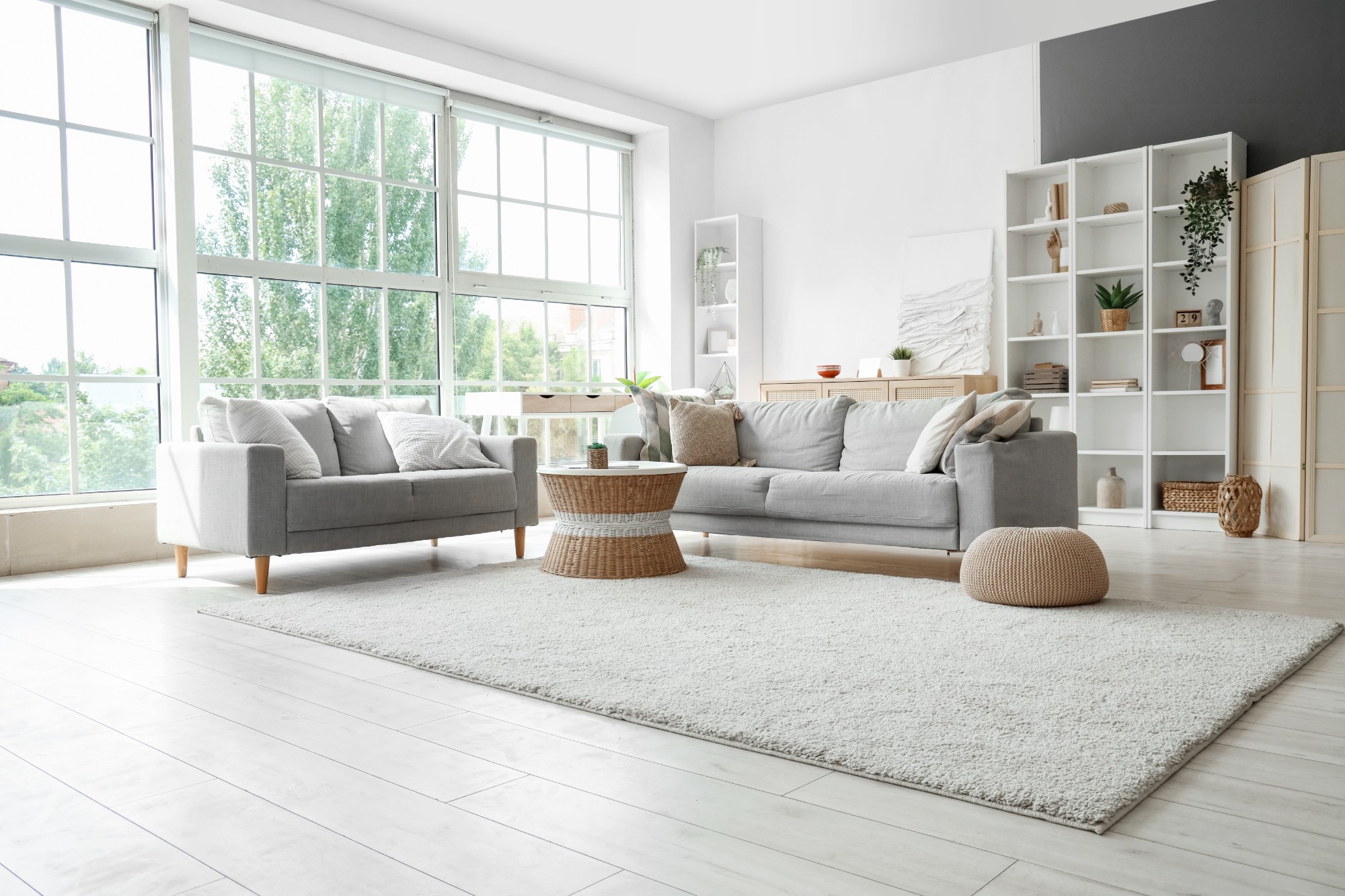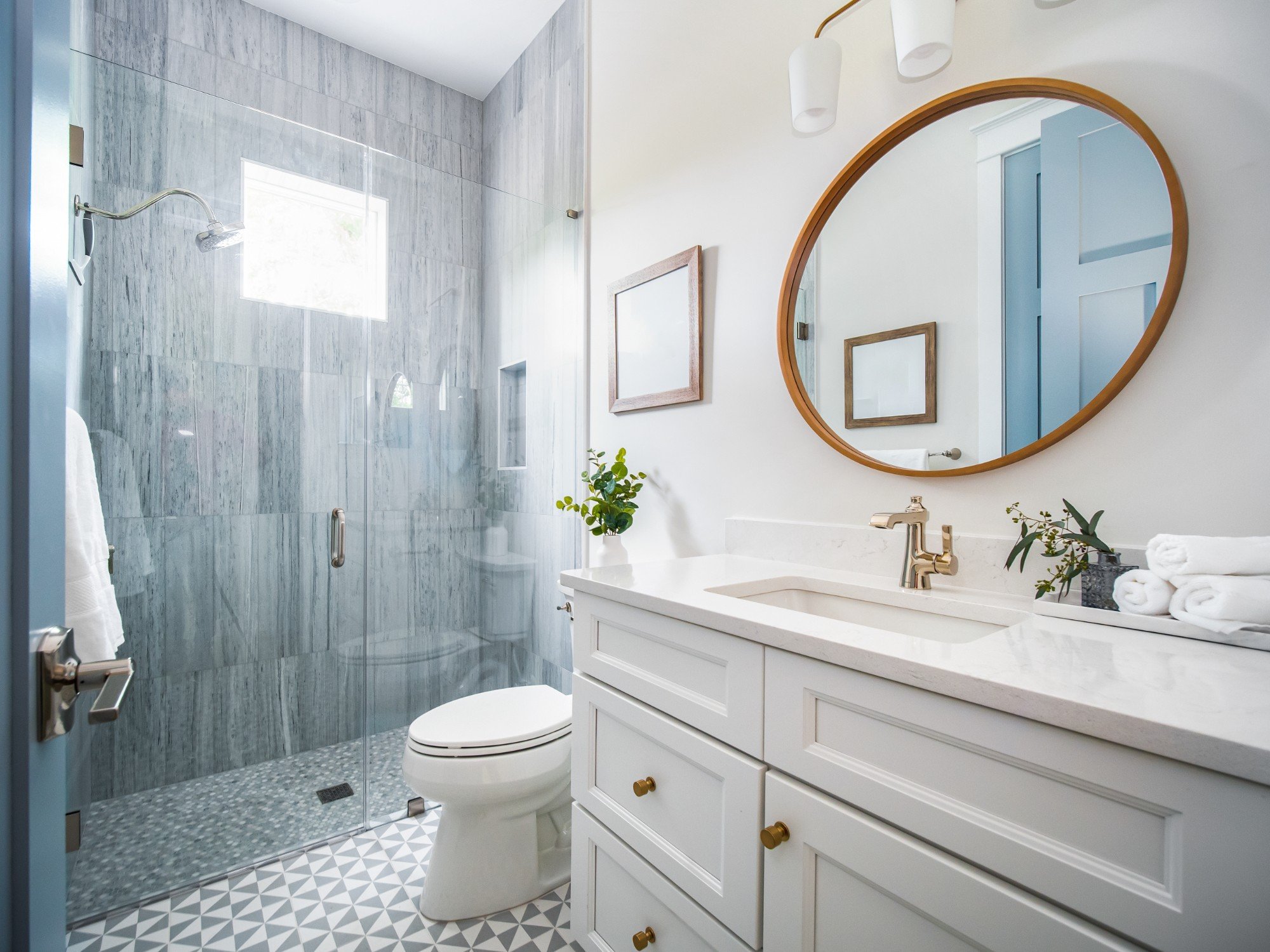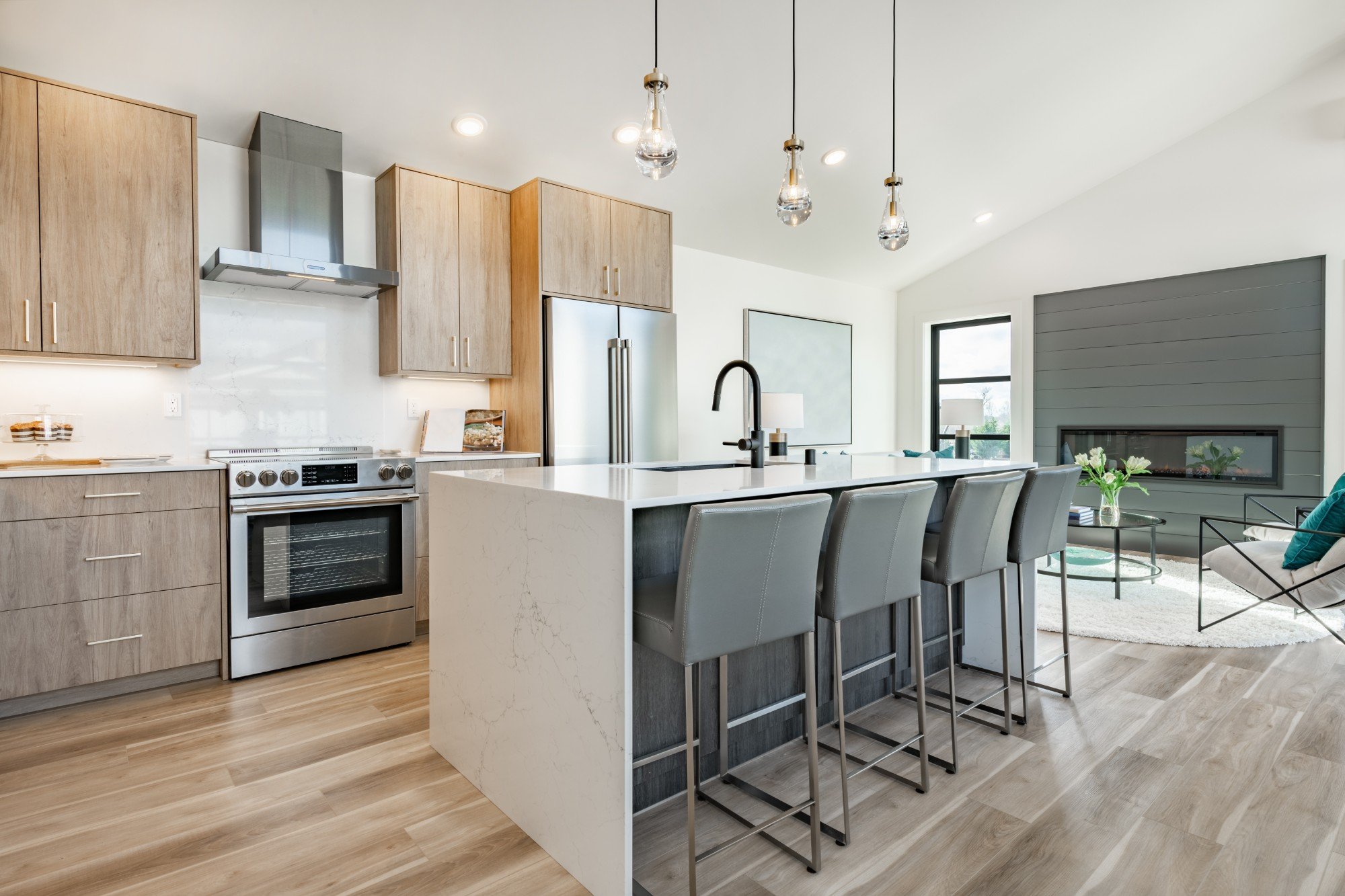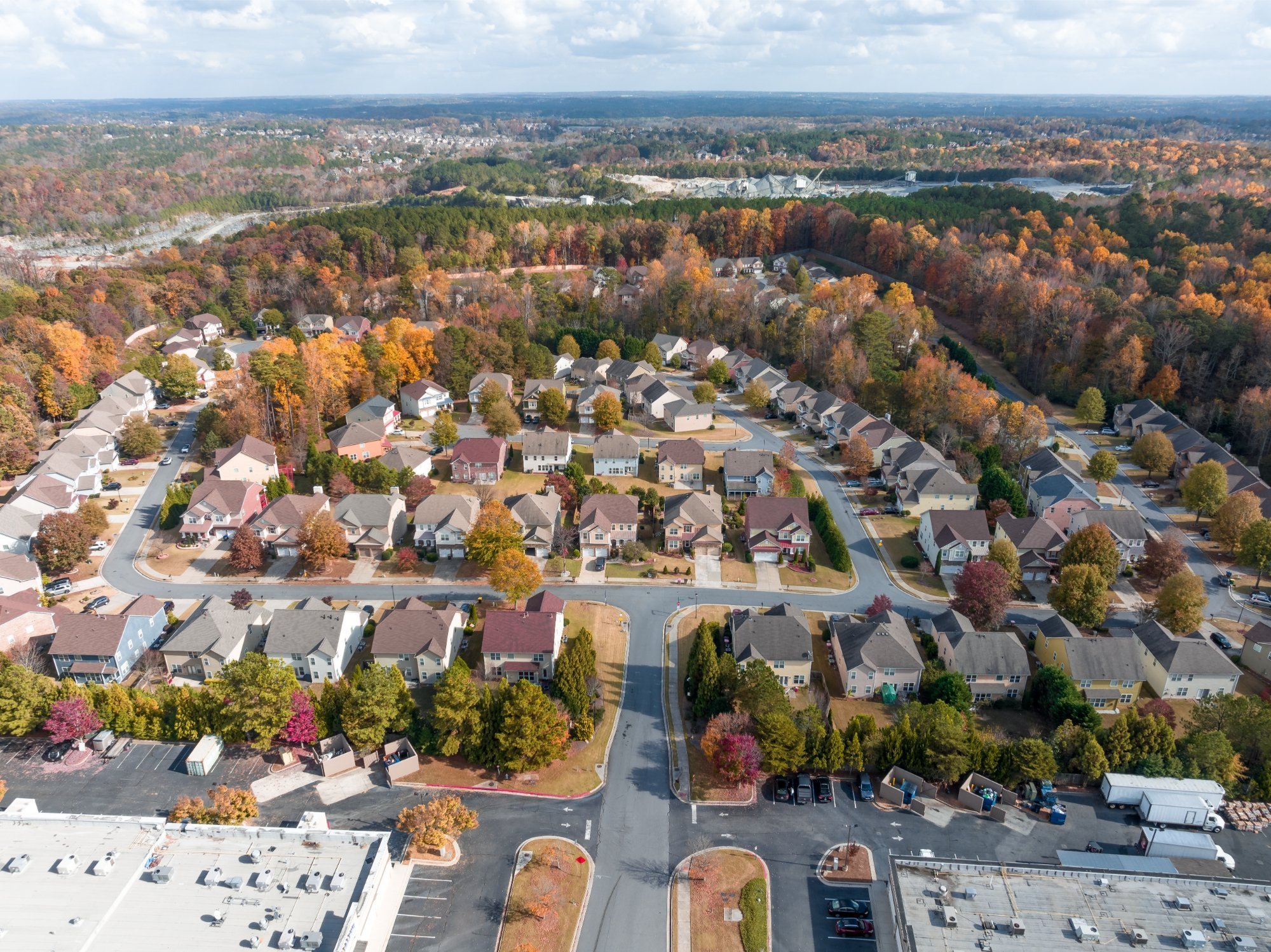North Carolina homeowners who add a fresh coat of paint to their interior walls can see an immediate 3-5% increase in their home's market value, yet most people wait until they're ready to sell before making any improvements. You're capable of building substantial equity in your NC home right now, whether you're planning to downsize to a cozy Charlotte bungalow or upsize to a larger Raleigh property with room for a growing family. This article breaks down ten practical strategies that work specifically in North Carolina's real estate market, from simple weekend DIY projects that cost under $500 to strategic renovations that can add $15,000 or more to your home's worth. You'll discover how to tackle kitchen updates that buyers in Asheville love, bathroom improvements that work well in Durham's historic neighborhoods, and curb appeal enhancements that stand out in Winston-Salem's competitive market. These aren't theoretical concepts - they're actionable steps you can start implementing this month to build equity that benefits you whether you stay put for years or decide to move next spring. The best part about building equity now is that you get to enjoy the improvements while you live there, making your daily life more comfortable while your investment grows. Each strategy includes specific cost breakdowns, realistic timelines, and tips for working with North Carolina contractors and suppliers. Ready to discover which improvements will give you the biggest return on investment in your specific area of the state?
Make Extra Mortgage Payments
Accelerating your mortgage payoff through additional principal payments cuts years off your loan term while dramatically reducing the total interest you'll pay. A buyer with a $400,000 30-year fixed-rate loan at 6% interest ends up paying $463,352.76 in interest over the loan term, but strategic extra payments can slash this burden significantly. When borrowers prepay their loan payments, they reduce the balance on the loan, so there is less interest charged over the loan term. Each dollar you apply toward principal today saves you multiple dollars in interest charges down the road.
North Carolina homeowners have several straightforward methods to implement this wealth-building strategy without straining their monthly budgets. These approaches work whether you're settling into a new Greensboro home or preparing to rightsize your current property:
- Switch to bi-weekly payments - Making bi-weekly mortgage payments instead of monthly can save $99,248.03 in interest over the loan life, essentially adding one extra payment per year without feeling the weekly pinch
- Apply windfalls directly to principal - Channel tax refunds, work bonuses, or inheritance money straight toward your mortgage balance rather than discretionary spending
- Round up monthly payments - Increase your regular payment by $50-200 monthly, targeting the principal portion specifically
- Redirect eliminated debt payments - Rolling $200 per month from paid-off credit card debt toward mortgage prepayment could save $98,270.88 in interest over the full term
- Use annual raises strategically - Commit half of any salary increase to mortgage acceleration while still enjoying improved lifestyle with the remainder
Building substantial equity through prepayment creates multiple financial advantages that compound over time. Your monthly payment stays the same, but an increasing portion goes toward principal rather than interest as the balance shrinks. This acceleration effect means each extra payment becomes more powerful at reducing your total debt load. For many borrowers, getting out of debt is a priority, and mortgage freedom provides unmatched peace of mind along with improved cash flow once payments end.
Establishing this habit now positions you perfectly for future moves within North Carolina's dynamic real estate market. Whether you're planning to downsize to a coastal retirement community or upsize to accommodate a growing family, the equity you build through consistent prepayment gives you more negotiating power and purchasing flexibility when the time comes to make your next move.
Invest in Key Home Improvements
Strategic renovations in your cooking and bathing spaces deliver the most substantial returns when building equity in North Carolina properties. These two areas consistently outperform other home upgrades because they represent daily functionality and lifestyle quality that resonates with buyers across all price ranges and demographics throughout the state.
Focus on Kitchens and Bathrooms
Kitchen renovations stand as the gold standard for value creation, with minor remodels delivering exceptional financial returns. A minor remodel of a 200-square-foot kitchen costs about $27,492 and recoups about $26,406 at resale, which represents approximately 96% return on investment according to recent industry data. This dramatic contrast becomes even more apparent when compared to major upscale kitchen overhauls that typically recover only 38% of expenses. The secret lies in targeting high-impact changes rather than complete demolition and reconstruction.
Bathroom improvements follow similar patterns, where moderate investments yield superior results compared to luxury makeovers. A midrange remodel of a 5×7-foot bathroom for $25,251 recoups about 74% of its cost at resale, while upscale bathroom renovations recover approximately 45% of investment costs. Smart homeowners focus on updating fixtures, refreshing tile work, and improving storage solutions rather than expanding square footage or installing premium materials that don't translate to proportional value increases.
Cabinet refreshing represents one of the most cost-effective approaches to kitchen transformation. If they have old cabinets that can be painted, painting them creates immediate visual impact without the expense of full replacement. This technique works particularly well in North Carolina homes where solid wood construction from previous decades provides excellent bones for cosmetic updates. Pairing fresh cabinet finishes with new hardware and updated countertops creates a completely transformed space at a fraction of full renovation costs.
Local NC Trends
North Carolina buyers demonstrate strong preferences for open-concept kitchen designs that flow seamlessly into living areas, reflecting the state's emphasis on casual entertaining and family gatherings. Granite countertops continue commanding premium prices, with granite tiles costing about $5 to $15 per square foot while delivering lasting appeal in markets from Charlotte to Wilmington. Subway tile backsplashes and farmhouse sinks align with the state's blend of traditional charm and modern functionality that characterizes successful home designs across different regions.
Bathroom trends in North Carolina lean toward spa-like retreats that maximize natural light and incorporate storage solutions for busy families. Walk-in showers with glass enclosures replace traditional tub-shower combinations in many successful renovations, particularly in homes targeting empty nesters who prioritize accessibility and low maintenance. Dual vanities and improved lighting fixtures address practical needs while creating the luxurious feel that distinguishes updated homes in competitive markets.
Calculating renovation budgets requires balancing immediate costs against long-term equity gains while considering your specific timeline and market conditions. Minor improvements that cost $15,000-30,000 typically provide better percentage returns than major renovations exceeding $50,000, making them ideal for homeowners planning to sell within five years. However, extensive renovations may justify their costs when you plan to enjoy the improvements for a decade or more while building substantial equity through market appreciation.
Enhance Curb Appeal
Your home's exterior appearance determines buyer interest before they even step through the front door, with 98% of homeowners agreeing that attractive street-facing features matter significantly for property values. North Carolina's competitive real estate market demands visual appeal that captures attention within seconds of a drive-by viewing. The difference between a well-maintained exterior and a neglected one can mean thousands of dollars in final sale price, particularly when you're preparing to rightsize your living situation.
Landscaping is the biggest bang for your investment dollar, delivering transformative results that work across all North Carolina climates from the mountains to the coast. This improvement strategy consistently outperforms other exterior updates because it addresses multiple visual elements simultaneously while requiring relatively modest financial commitment. Professional-quality results become achievable through weekend DIY efforts when you understand which specific changes create maximum visual impact.
Quick exterior transformations that build immediate equity include these proven approaches:
- Fresh exterior paint - A complete exterior paint job costs between $5,290-$26,483 in Raleigh-Durham depending on home size, but delivers dramatic visual refresh that signals proper maintenance to potential buyers
- Strategic plant placement - Adding foundation plantings, colorful annuals, and mature shrubs creates depth and seasonal interest that photographs beautifully for online listings
- Lawn restoration - Overseeding bare patches, edging walkways, and maintaining consistent mowing schedules creates the manicured appearance that 73% rate as major improvement
- Window box installations - These additions provide instant charm and allow for seasonal color changes that keep your home looking current and cared for
- Pressure washing surfaces - Cleaning driveways, sidewalks, and siding removes years of accumulated grime for immediate brightness enhancement
- Mailbox and house number updates - Modern hardware and clearly visible addressing create polished finishing touches that complete the overall presentation
The psychological impact of stellar street presence extends beyond individual property values to influence entire neighborhood desirability. When multiple homes on a block maintain excellent exterior standards, the collective effect creates premium market positioning that benefits every homeowner. This community-wide appreciation becomes particularly valuable in North Carolina's established neighborhoods where mature trees and historic character already provide strong foundations for visual appeal.
Charlotte homeowners investing in exterior improvements typically spend between $5,282-$22,002 for comprehensive curb appeal projects, with mid-range investments around $15,013 delivering optimal return ratios. These figures reflect the growing recognition among North Carolina property owners that exterior presentation directly correlates with equity growth potential. Market data shows 24% year-over-year increase in exterior improvement projects, indicating widespread awareness of this wealth-building strategy.
Timing these improvements strategically maximizes their equity-building potential while allowing you to enjoy enhanced daily living experiences. Spring plantings establish root systems before summer heat, while fall exterior painting projects take advantage of moderate temperatures and lower humidity levels that ensure proper adhesion and curing.
Refinance to a Shorter Loan Term
Switching from a 30-year mortgage to a 15-year loan term transforms your monthly payment structure while dramatically reducing the total interest burden over the life of your loan. This financial strategy works particularly well for North Carolina homeowners who have built substantial equity through market appreciation or consistent payments. Refinancing is booming in September 2025, driven by recent dips in interest rates that create compelling opportunities for mortgage restructuring across the state.
Current market conditions in North Carolina present favorable circumstances for homeowners considering loan term adjustments. Mortgage rates have experienced multiple declines throughout 2025, with refinancing share of mortgages projected to rise from ~26% in 2025 to 35% in 2026 as rates fall below 6 percent according to Fannie Mae projections. These rate improvements mean that many borrowers can secure shorter terms without experiencing prohibitive payment increases, making equity acceleration more accessible than in previous high-rate periods.
Determining whether loan term modification aligns with your financial objectives requires systematic evaluation of several key factors. These steps guide you through the decision-making process while ensuring you make informed choices about your mortgage structure:
- Compare your existing rate against current market offerings - Calculate the percentage difference between your current mortgage rate and available refinancing rates to determine potential savings opportunities
- Analyze monthly payment changes - Determine whether the increased monthly payment for a shorter term fits comfortably within your budget while maintaining adequate cash flow for other financial priorities
- Assess your home equity position - Verify that you have sufficient equity to qualify for favorable refinancing terms, typically requiring at least 20% ownership stake in your property
- Calculate your breakeven point - Determine the time it takes for monthly savings to exceed your upfront costs, which typically ranges from 2 to 4 years for most refinancing scenarios
- Evaluate your housing timeline - Consider whether you plan to remain in your current home long enough to realize the full benefits of term reduction and interest savings
- Review your overall debt strategy - Examine how mortgage acceleration fits with other financial goals such as retirement savings, emergency fund building, or debt elimination priorities
Equity gains have given many homeowners the equity cushion required for favorable refinance options that support wealth building through accelerated principal reduction. A simple refinance could save hundreds each month while redirecting more of your payment toward ownership rather than interest charges. This approach becomes particularly powerful when you consider that shorter-term loans typically offer lower interest rates than their 30-year counterparts, compounding the financial advantages.
Timing considerations play a crucial role in maximizing the benefits of term reduction refinancing. If you have a higher rate, strong equity, and plan to remain in your home, refinancing could be one of the most financially impactful decisions you make this year. The combination of improved rates and accumulated equity positions many North Carolina homeowners to take advantage of this wealth-building strategy while market conditions remain favorable.
Energy Efficiency Upgrades
Double-pane windows with Low-E coatings can reduce heating and cooling costs by 25-30% annually while adding substantial market value to North Carolina properties. These thermal barriers work by creating insulating air pockets between glass layers, preventing heat transfer that forces HVAC systems to work harder throughout the state's varied climate zones. Proper window installation becomes particularly crucial in North Carolina's humid summers and occasional winter freezes, where single-pane windows allow conditioned air to escape while outdoor temperatures infiltrate living spaces.
Attic insulation upgrades deliver even more dramatic results for North Carolina homeowners, with R-38 to R-60 insulation levels recommended for optimal performance across the state's climate regions. Blown-in cellulose or fiberglass insulation costs approximately $2.50-$4.00 per square foot installed, yet reduces monthly utility bills by 15-40% depending on existing insulation conditions. Wall insulation improvements through injection foam or blown-in materials address thermal bridging issues common in older North Carolina homes, creating comprehensive thermal envelopes that maintain consistent indoor temperatures year-round.
North Carolina's Energy Saver NC program provides up to $16,000 for whole-home energy savings rebates for eligible single-family homes, making comprehensive efficiency upgrades financially accessible for homeowners preparing to rightsize their properties. The state program also offers up to $14,000 for certain electric appliance rebates, covering high-efficiency heat pumps, electric water heaters, and induction cooktops that reduce long-term operating costs. These rebates give households an extra financial lift to make home upgrades they might have been postponing, particularly when combined with federal tax credits that can cover an additional 30% of qualifying improvement costs.
Duke Energy Progress and Duke Energy Carolinas offer additional rebate programs specifically for North Carolina customers, including $300-$600 rebates for ENERGY STAR certified heat pumps and $50-$150 rebates for programmable thermostats. These utility incentives stack with state programs, creating multiple funding sources that significantly reduce upfront investment requirements. The combined savings potential means homeowners can recover their efficiency investment costs within 3-5 years through reduced utility bills, while immediately building equity through improved home performance ratings.
Professional energy audits through certified contractors help identify the most cost-effective upgrade priorities for your specific property, ensuring maximum return on investment for efficiency improvements. These assessments typically cost $300-$500 but reveal hidden energy losses that DIY evaluations often miss, guiding strategic spending decisions that deliver optimal results.
Maximizing your efficiency upgrade impact requires systematic implementation of proven strategies that address multiple energy loss sources simultaneously:
- Seal air leaks first - Caulk around windows, doors, and penetrations before adding insulation to prevent conditioned air from escaping through gaps
- Upgrade to programmable thermostats - Smart thermostats reduce heating and cooling costs by 10-15% through optimized temperature scheduling and remote control capabilities
- Install storm doors - Adding storm doors to main entrances creates additional thermal barriers while protecting primary doors from weather damage
- Replace weatherstripping annually - Fresh weatherstripping around doors and windows maintains tight seals that prevent drafts and moisture infiltration
- Consider whole-house fans - Attic fans reduce cooling loads during moderate weather by pulling cool air through living spaces and exhausting hot air from upper levels
- Prioritize south-facing windows - Focus premium window upgrades on southern exposures that receive maximum solar heat gain during summer months
Timing efficiency upgrades strategically around North Carolina's seasonal patterns maximizes both comfort and cost savings while building substantial equity through improved home performance ratings that appeal to energy-conscious buyers throughout the state.
Utilize Windfalls Wisely
Unexpected financial gains like annual bonuses, tax refunds, or work incentives create powerful opportunities to accelerate equity building in your North Carolina home. These lump-sum payments represent concentrated wealth that can dramatically reduce your mortgage balance when applied strategically to principal reduction. Rather than allowing these funds to disappear into discretionary spending or low-yield savings accounts, directing them toward your home loan creates measurable wealth accumulation that compounds over time.
Effective Strategies
Applying your entire tax refund directly to mortgage principal eliminates years from your loan term while saving thousands in interest charges. A $3,000 tax refund applied to a $300,000 mortgage at 6.5% interest saves approximately $8,400 in total interest over the loan's lifetime. This approach works because each dollar of principal reduction eliminates all future interest calculations on that amount, creating exponential savings that grow more powerful with each passing year.
Work bonuses deserve similar strategic treatment, particularly when you receive them consistently. Annual performance bonuses of $5,000-$10,000 can shave 3-5 years off a typical 30-year mortgage when applied consistently to principal reduction. The key lies in treating these payments as automatic mortgage acceleration rather than lifestyle upgrades, creating disciplined wealth-building habits that transform temporary income spikes into permanent equity gains.
Inheritance money or insurance settlements provide even larger opportunities for dramatic mortgage reduction. These substantial windfalls can eliminate decades of payments when applied thoughtfully to principal balances. A $50,000 inheritance applied to mortgage principal on a $400,000 loan reduces the remaining balance to $350,000 immediately, saving approximately $125,000 in interest charges over the loan's original term while shortening payoff time by nearly eight years.
Smart Implementation Approaches
Timing windfall applications strategically maximizes their equity-building impact through careful coordination with your regular payment schedule. Making extra mortgage payments immediately after your regular monthly payment ensures the reduction applies to the next month's interest calculation, maximizing the compounding effect. This timing consideration becomes particularly important for larger windfalls where even a few days can affect hundreds of dollars in interest savings.
Creating dedicated windfall accounts prevents these funds from mixing with regular spending money while you decide on optimal application timing. Many North Carolina homeowners establish separate savings accounts specifically for tax refunds and bonuses, allowing them to accumulate multiple windfalls before making substantial principal payments. This approach enables larger lump-sum applications that create more dramatic equity acceleration than smaller, frequent payments.
Combining windfall strategies with regular extra payment programs amplifies their wealth-building potential through systematic mortgage reduction. Homeowners who apply windfalls to principal while maintaining consistent monthly overpayments create dual acceleration that can reduce 30-year mortgages to 15-18 year terms without the higher monthly obligations of formal loan restructuring.
Establishing automatic windfall allocation prevents emotional spending decisions that divert these funds from equity building. Setting up predetermined percentages for mortgage principal, emergency savings, and discretionary spending creates systematic wealth accumulation that doesn't rely on willpower or changing financial priorities. Many successful homeowners commit 70-80% of windfalls to mortgage reduction while reserving smaller portions for immediate enjoyment or emergency fund building.
Planning windfall utilization requires balancing immediate mortgage reduction against other financial priorities like retirement contributions or debt elimination. Creating written allocation strategies before receiving unexpected income prevents impulsive decisions that undermine long-term wealth building while ensuring these opportunities contribute meaningfully to your overall financial health and home equity accumulation goals.
Add Livable Space
Converting underutilized areas of your home into functional rooms creates immediate equity gains while providing the extra space your family needs without the expense of moving. North Carolina homeowners discover that transforming unused basements and attics into bedrooms, offices, or entertainment areas delivers substantial returns on investment while addressing the growing demand for flexible living arrangements. These internal expansions work particularly well for families preparing to rightsize, whether you need additional space for a growing household or want to create income-generating rental units.
Basement conversions represent one of the most cost-effective methods to add substantial square footage to your North Carolina property. The process typically involves moisture control measures, proper insulation installation, flooring upgrades, and electrical work to create comfortable below-grade living areas. According to the 2022 Remodeling Impact Report by the National Association of Realtors®, homeowners who finish a basement recoup about 86% of the project cost on average when they sell. Most basement finishing projects in North Carolina range from $15,000 to $35,000 depending on size and finish quality, with basic conversions focusing on drywall, flooring, and lighting while premium projects include full bathrooms, wet bars, or home theaters.
Moisture management becomes the critical first step in any basement transformation, particularly in North Carolina's humid climate where groundwater and condensation issues can compromise finished spaces. Professional waterproofing, proper drainage systems, and vapor barriers prevent future problems that could undermine your investment. Egress windows or doors must meet building code requirements for bedroom conversions, typically requiring window wells and specific size dimensions for emergency exits. These safety features add $3,000 to $8,000 to project costs but ensure legal compliance and maximum appraisal recognition.
Attic conversions offer different advantages, creating private retreats or home offices that capitalize on existing roof structures. Structural assessments determine whether floor joists can support additional weight loads, while ceiling height requirements typically mandate at least 7.5 feet of clearance in habitable areas. Dormer additions or skylights provide natural light and ventilation that transform dark storage areas into bright, appealing rooms. HVAC extensions ensure year-round comfort in these upper-level spaces, with ductwork modifications adding $2,500 to $5,000 to conversion budgets.
Insulation upgrades become essential for attic conversions, with R-30 to R-38 levels recommended for North Carolina's climate zones. Proper insulation prevents ice dams in winter and reduces cooling loads during summer months, creating comfortable spaces while maintaining energy efficiency. Stairway access often requires structural modifications, with spiral staircases offering space-saving solutions where traditional stairs won't fit existing floor plans.
Calculating the financial impact of these expansions requires understanding how appraisers value below-grade and converted spaces. Finished basement space is generally appraised at 50–60% of the value per square foot of main-floor living space, depending on location and light access. Attic conversions typically receive higher valuations when they include proper ceiling heights, natural light, and climate control systems that match the home's primary living areas.
Maximizing your space conversion investment involves strategic planning that addresses both immediate functionality and long-term market appeal. Creating separate entrances for basement apartments enables rental income opportunities that help offset conversion costs while building equity through improved cash flow. Multi-purpose designs that serve as guest suites, home offices, or entertainment areas appeal to diverse buyer preferences when you eventually sell your North Carolina home.
Final Thoughts
Building equity in your North Carolina home doesn't require waiting for market appreciation or complex financial maneuvers. The ten strategies we've covered give you direct control over your property's value through smart improvements and strategic decisions. Kitchen updates, bathroom renovations, energy-efficient upgrades, and curb appeal enhancements all deliver measurable returns on your investment.
These approaches work particularly well in North Carolina's diverse housing market, from the mountains to the coast. Whether you're preparing to downsize in Asheville or upsize in Charlotte, these equity-building tactics adapt to your specific situation and timeline. The beauty lies in their flexibility - you can tackle small weekend projects or plan larger renovations based on your budget and goals.
Your home represents more than shelter; it's a financial asset that responds to thoughtful improvements. Each upgrade compounds over time, creating wealth that serves you whether you stay put for decades or move next year. The North Carolina real estate market rewards homeowners who invest wisely in their properties, and these strategies position you to capture that value.
Start with one project that fits your current budget and skill level. Maybe it's fresh paint in high-impact areas or updating light fixtures throughout your home. Build momentum with each completed improvement, and watch your equity grow alongside your satisfaction with your living space. Your future self will thank you for taking action now rather than postponing these valuable investments.







